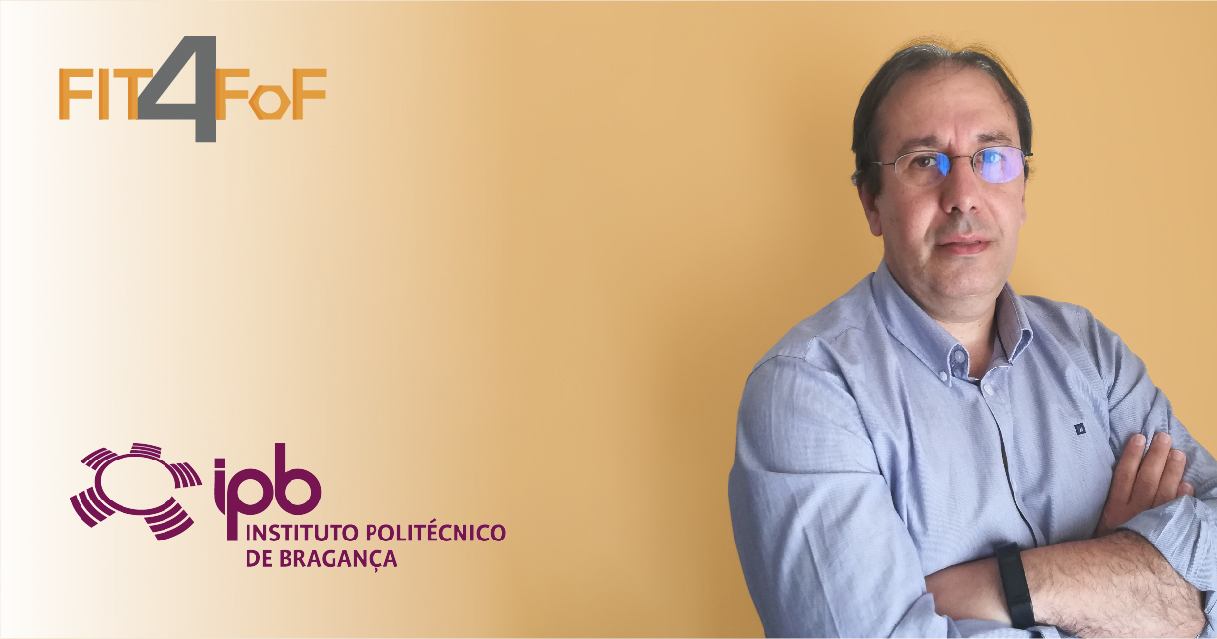Interviewing Paulo Leitao from IPB "The STEM education is a good example"
Paulo Leitão, professor at Polytechnic Institute of Bragança (IPB), answered some questions about his institution and about training in industry in Portugal, with a view to the future.

How is the training in Portugal? (This university is very linked to the company, the government collaborates in actions to support business training)
The training in Portugal is provided by Universities and Polytechnic academic institutions, which offer PhD, Master, Bachelor and Higher Professional Technical programmes, and Professional Training institutions that provide professional courses aiming the qualification of people and contributing for the insertion of unemployed people in the labour market, by adjusting their skills to the current requirements.
Currently, Portugal slightly exceeds the European average of young people aged 20 to 34 who completed a level equal to or higher than secondary education and found employment in a time period of 1 to 3 years, with a rate of 80,7%. Nevertheless, Portugal aims to reach a rate of 82% regarding the employment of young graduates aged 20 to 34. For this purpose, these programs, but particularly the higher professional technical programmes and the professional training courses, are being designed to face the demand and requirements imposed by the market, in some situations in cooperation with companies.
How should the formation of the future be?
Nowadays, we are noticing an industrial revolution associated to the digital transformation, which is re-shaping the job profiles and the skills, leading to the decrease in low-skilled activities and an increase on high-skill activities. Also, many jobs that are now crucial to implement this transformation, such as Big Data Analyst and Cloud Services Specialist, did not exist 10 years ago. This requires a re-design of the training programs to properly address these new requirements.
Additionally, some of these new jobs requires a multi-disciplinary knowledge of scientific methods, processes, algorithms, systems and businesses. As example, the Data Scientist job involve the knowledge and competences in different fields comprising mathematics and statistics, programming and databases, domain knowledge, and communication and visualization. The STEM education is a good example, where the training curriculum is based on the idea of educating students in four specific disciplines, science, technology, engineering and mathematics, in an interdisciplinary and applied manner, considering a cohesive learning paradigm based on real-world applications.
In another dimension, the use of digital platforms and technologies can support a more efficient training, e.g., supporting blended learning that combines online with place-based classroom training, as well as new training methodologies e.g., based on project based learning and practice based learning.
What are the most demanding profiles in the industry in Portugal?
In Portugal, but also in other European countries, the most demanding profiles are associated to competences regarding to the digitalization and particularly to the use of artificial intelligence to explore the “value of the data”, for example Business Analyst, Data Scientist / Data Engineer, Robotics Engineer and Cybersecurity Engineer. Interesting is to notice that e.g., Computer Science engineers are very requested and usually they are hired even before to complete their formation.
Should there be a mix between soft skills and hard skills in training?
Soft skills are currently assuming an important role in the new job profiles, e.g., with creativity, critical thinking, communication and team work, emerging as important qualifications for, not the future, but for the present jobs. In this context, proper training programs should address learning outcomes associated to technical knowledge and skills, but also highlight the development of the soft skills in a natural manner during the training path.
For this purpose, new learning strategies that stimulates the development of the soft skills during the acquisition of the technical skills are strongly advised, e.g., the flipped classroom model.
How has COVID impacted on training in Portugal?
As in all other countries affected by COVID, the classroom training was cancelled and replaced by online training. Institutions and teachers have adapted very fast to the new reality by using digital technologies and resources, and strongly mitigating the effects of physical distancing. At the moment, the training is supported by online learning strategies, where the acquisition of competences and also their evaluation is performed online and using digital technologies, like videoconference platforms, discussion forums and chats.
On the other hand, due to the COVID pandemic, it was noticed an increase in the demand by some professionals focused on digitization, e.g., cybersecurity engineers, net developers or cloud services specialist, which requires the implementation of up-skilling initiatives focusing these new digital skills that allow professionals to adapt their qualifications to the new job market reality.
Will covid19 promote online training?
During covid pandemic period, the interaction among people have changed and the use of online platforms, and especially online training were adopted at the several levels of education.
The acceptance of different players, namely teachers and students, was fast and successful, open new windows to promote the use of online training when our lives will come to normal and classroom training will be possible. At this moment, online training will be strongly combined with face-to-face training promoting the implementation of blended learning strategies.